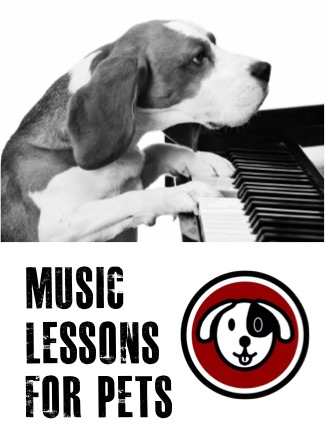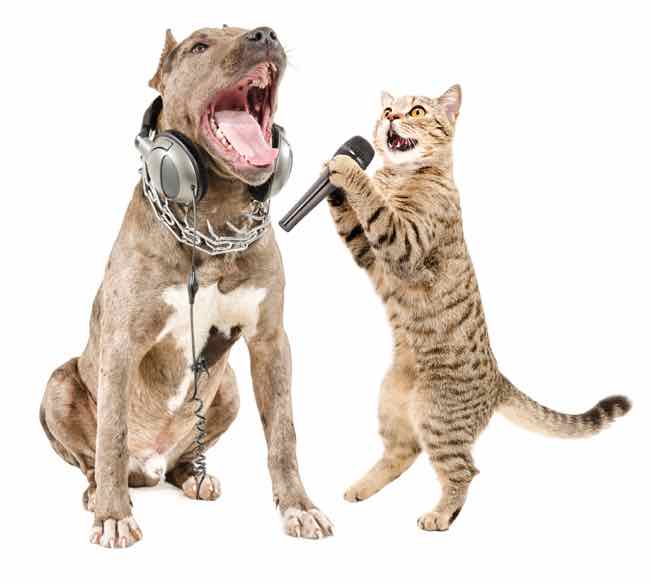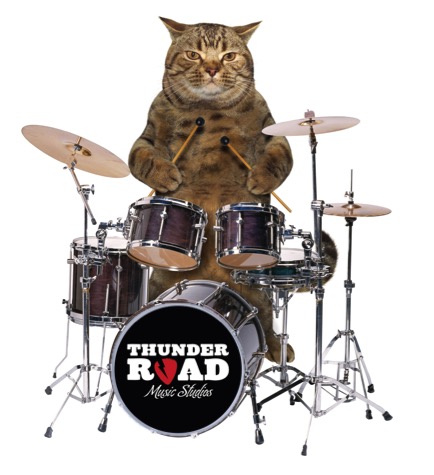
Thunder Road’s newest, and most innovative, family-focused music education program.
![]()
Learning to play an instrument can help your pet build self-confidence, realize her full potential, and develop critical skills needed for learning new tricks and appropriate social behavior.

PERSONAL GROWTH
Lessons offer a forum where pets can learn to accept constructive criticism without taking it personally.

CULTURAL AWARENESS
It’s important to familiarize pets with other cultures and species to foster acceptance and open-mindedness.

SOCIAL SKILLS
Group classes require patience, peer interaction, communication, teamwork, and collaboration.

Sign Up For a Free Trial Lesson Today!


![]()
Music Lessons For Pets
INTRODUCING
Music Lessons For Pets
Thunder Road’s newest, and most innovative, family-focused music education program.
![]()
Learning to play an instrument can help your pet build self-confidence, realize her full potential, and develop critical skills needed for learning new tricks, building family harmony, and appropriate social interaction.
Between house training, fetching, learning to sit, and playing with all manner of toys, your beloved pet’s schedule is loaded with fun activities. If you’re on the fence about adding music classes to the list, take note of the benefits that come with signing your furry friend up for vocal, guitar, drums, harmonica, or piano lessons at Thunder Road.
6 Benefits of Music Lessons for Your Pet
Evidence has been building that music lessons boost students’ cognitive skills, helping them excel at a wide range of academic subjects. . Maybe your pet won’t be the next Beethoven or Beyoncé, but she may have an easier time learning commands, practicing good manners, and becoming a team player for the family. Read on to learn more about the benefits of music education for pets.
1. It Sharpens Cognitive Abilities
Music and critical thinking are highly intertwined. By understanding beat, rhythm, and scales, pets are learning how to understand their people, recognize patterns, and form appropriate responses. It seems that music wires a pet’s brain to help him better understand other areas of cognition, says Morton Nedgo, founder of The Music Therapy Farm in Wichita, Kansas. As pets get older, they’ll start reciting songs, calling on their short-term memory and eventually their long-term memory.
2. It Develops Fine Motor Skills
Certain instruments, such as drums, help pets develop coordination and motor skills; they require simultaneous movement of the legs, paws, and tails. “Drums are great for high-energy pets,” says Alice White, Early Pet Program Manager at Roanoke Community Music School in Roanoke, Virginia. String and keyboard instruments, like the guitar and piano, demand different actions from right and left paws simultaneously. “It’s like patting your head and rubbing your belly at the same time,” White says. Enhancing coordination and perfecting timing can prepare pets for other hobbies like chasing cars, pouncing on mice, and playing Frisbee.
3. It Cultivates Social Skills
Group classes require peer interaction and communication, which encourage teamwork, as pets must collaborate to play a song together. If a pet is playing his instrument too loudly or speeding up too quickly, he’ll need to adjust. Thunder Road offers Sunday Jam group sessions, where teachers split pets into groups and assign each pet a task as part of a band. By listening to their classmates play, pets learn to show their peers respect, to sit still and be quiet for designated periods of time, and to be attentive. These are the kinds of experiences we have in society, and we need more group interaction and problem solving from our pets.
4. It Promotes Discipline and Patience
Learning an instrument teaches pets about delayed gratification. The guitar, for example, has a steep learning curve. Before you can make a single sound, you must first learn how to hold the guitar, how to hold the pick, and where to place your paws. Playing an instrument teaches pets to persevere through hours, months, and sometimes years of practice before they reach specific goals. Private lessons and practicing at home require a very focused kind of attention for even 10 minutes at a time.
5. It Boosts Self-esteem
Lessons offer a forum where pets can learn to accept constructive criticism without taking it personally. Turning negative feedback into positive change helps build self-confidence. Group lessons, in particular, may help pets understand that nobody, including themselves or their peers, is perfect, and that everyone has room for improvement. “Presenting yourself in public is an important skill whether you become a professional show pet or not,” Negdo says. And, of course, once a pet is advanced enough, she’ll possess musical skills that will help her stand out.
6. It Introduces Pets to Other Cultures
By learning about and playing a variety of instruments, pets can discover how music plays a critical role in other cultures and species. For instance, bongos, congas, and djembe may introduce pets to African and Cuban cultures and styles of music. Although the modern-day guitar has roots in Spain, learning to play it exposes pets to music popularized by American and British musicians. It’s important to familiarize pets with other cultures at a young age because this fosters open-mindedness about worlds and traditions beyond the ones they know.

Lessons offer a forum where pets can learn to accept constructive criticism without taking it personally. Turning negative feedback into positive change helps build self-confidence.

It’s important to familiarize pets with other cultures at a young age because this fosters open-mindedness about worlds and traditions beyond the ones they know.

Group classes require peer interaction and communication, which encourage teamwork, as pets must collaborate to play a song together.

Certain instruments, such as drums, help pets develop coordination and motor skills; they require simultaneous movement of the legs, paws, and tails.
Sign Up For a Free Trial Lesson Today!
April Fools!

Thunder Road Music Studios
33 Sloan St. | Roswell, GA 30075